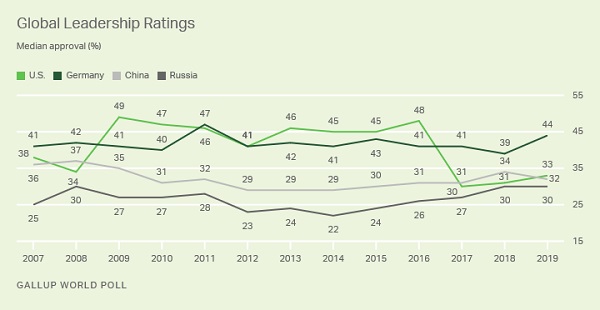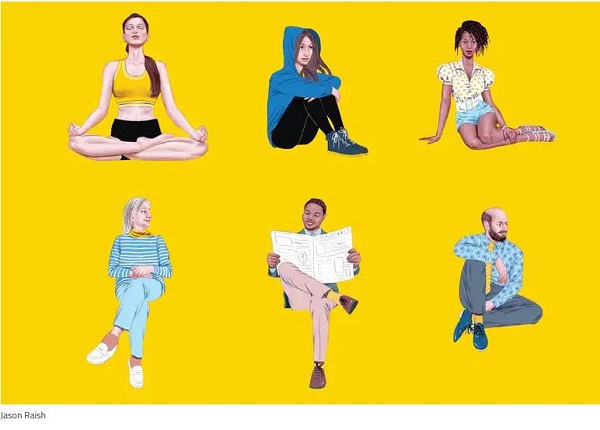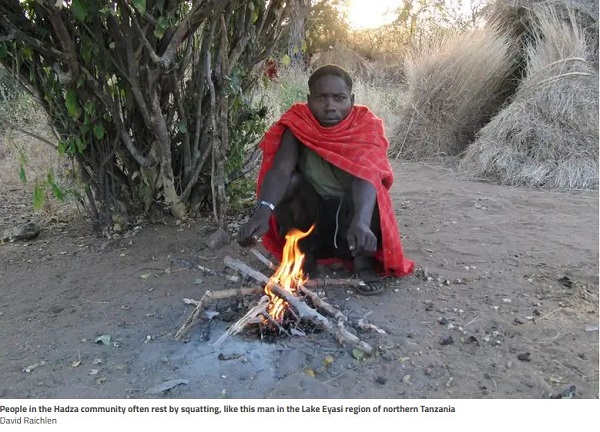1. Deutschland über alles

Germany has again been rated as the world’s most admired country, according to a poll published by Gallup.
The way I heard it explained is that only four contenders are picked – The USA, Russia, China and Germany – because they are best placed to exercise leadership in the world, if they so choose. So here are the results since 2007:

In this poll it seems over 40 is a top mark, and down around 30 is rubbish. Under Obama’s second term the US did well, but Trump saw the US slump from 48 to 30. You can see how much Putin and Xi have impressed.
I heard on the radio that Trump’s best is in Africa. The Europeans detest him, the Germans 78/12 disapprove.
Germany does well in a range of other polls.
This brings to mind a German lecturer we had at uni, a lovely man. He told us his grandfather was the only Prussian general who lost a battle in the Austro-Prussian War of 1866.
He also told us that the Germans might be admired and respected by others, but never loved.
We loved him, and we were sad when he had a heart attack and died at the age of 51.

2. Twiggy Forrest to show the way
Tim Dunlop has unloaded on the ABC for choosing Andrew “Twiggy” Forrest to deliver the prestigious Boyer Lectures this year, a series “designed to explain ourselves to ourselves”.
To Dunlop it is a sad commentary on the ABC and indeed our public culture in general.
By and large, especially in its mainstream presentation, that public culture is run by people lacking in daring and imagination who seek only to reproduce their own dull views and ensure that power is never troubled by those who would question its rightness and its virtues.
Dunlop tires of hearing from the Baby Boomers, saying we should look to the likes of:
- thoughtful, brilliant engaging people who barely get a chance to fully enter into the intellectual life of the country. Anyone of these—Amy McQuire, Jack Latimore, Lizzie O’Shea, Tim Lyons, Tim Hollo, Amy Cooper, Jane Gilmore, Jess Hill, Emma Dawson, Ingrid Matthews, Richard Cooke, Richard Chirgwin, Elise Klein, Jane R. Goodall, to name but a few—would make excellent Boyer lecturers, but few of them are in a position to ever make their presence felt, certainly not on any sort of sustained basis.
He guesses that Ita Buttrose may not have heard of any of those.
Beyond the tired MSM he sees hope and value in sites like The Conversation and Inside Story, plus The Monthly and The Saturday Paper, Australian Book Review, Overland, Arena, Sydney Review of Books, The Griffith Review and his organ of choice, Meanjin.
Not on the list is The Guardian, which I know to be out of favour with his sector if the intellectual left.
He does raise a good point about the quality of public discourse, and reminds us that Ita Buttrose is in fact chair of the board at the ABC. I’m not aware of anything else she has done, which may or may not be for the best.
While I can’t always keep up with him, John Menadue’s Pearls and Irritations provides stimulating posts.
Any others? Please share.
3. Is China weak or strong?
Hamish McDonald asks the question and says the evidence can be interpreted both ways. He consults all the right people and compiles the best summary and analysis I’ve seen on where China under Xi Jinping has come from, where it is now, and where it may go in the future.
Some of China’s people have been and continue to be treated brutally internally, but overall there remains public esteem for the regime. Economic growth is considered by the regime as essential in retaining support.
Externally China is losing its shine in most places. China has stirred an evolving giant in India unintentionally. The conflict with the US has been hardened by Trump, and looks unresolvable. The Trump regime is now saying in public they want regime change, and the adoption of Western liberal/Christian values. That is delusional. We have backed the US, as demanded, but not all the way. So, McDonald says:
- In the event of the United States “decoupling,” as some security hawks seek, China is comparatively well placed to thrive on its own. With 1.4 billion people, the long-delayed rebalancing would create a massive internal market. “They would be much better off in a globally closed economy than we are,” Golley says. “We’d be one of the worst off. The Americans could handle it better than we can with their population.”
We have backed a country looking at a 10% reduction in GDP against one that will probably grow by two or three per cent.
Bottom line, impossible to say what happens next:
- Nevertheless, it looks like being a fraught hundred days until the US elections are over. Trump is painting his contender Joe Biden as a sellout to the Chinese; Chinese propaganda officials are saying they want Trump to win because he will bring down America and destroy its alliances. It all means that under Trump or Biden, engaged or decoupling, Washington will have permanently firmed up against China.
As for Xi Jinping’s position, it will continue to be enigmatic. “Any shock will come in elite politics,” said Geoff Raby. “It will be played out in a way we can’t see, that we won’t know about until it’s happened.”
I suspect China will continue to bully us, because they can, as a warning to others.
Tristan Edis points out that the Morrison government’s climate policy will come unstuck if Trump is turfed. Biden’s climate policy is impressive.
Scotty from Marketing is not positioning the country well. Trade negotiations with Britain and the EU have already hit a snag over our lack of a climate policy. We have only said what we won’t do. Angus Taylor’s “technology not taxes” won’t cut it.
4. How chairs shorten your life

The New Scientist reports on an investigation of the resting practices of the Hadza in Northern Tanzania, one of the last populations of hunter-gatherers on the planet.
A group of researchers tried to find out why the Hadzas suffer practically no heart disease.
The Hadza do not have chairs, which were invented about 5,000 years ago. They found that the Hadza actually spend about 10 hours per day in resting, the same as people in the US, The Netherlands and Australia.
They also shifted position about 50 times per day, the same as us.
Presumably a fair part of the success of the Hadza relies on the activity during active periods, and diet. The research group, as reported, does not sort out these effects, but concentrates on differences in how the Hadza rest. The Hadza divide this time between sitting, kneeling and squatting.
What they found was that the Hadza spend about a third of their time in “active resting”, that is, squatting and kneeling.
- Squatting forces you to keep the body balanced over the feet, requiring between five and 10 times as much muscle activity in the legs as sitting in a chair or on the ground, and sometimes even more muscle activity than we would expect from light activity.
Other research has shown that persistent resting as we do elevates triglyceride levels.
- Importantly, if the sitting time is broken up with light activity, even a bit of slow walking, triglyceride levels are greatly reduced. In fact, people asked to reduce sitting by spending more time walking and standing over a four-day period saw a 32 per cent drop in triglyceride levels. Sitting for long, uninterrupted periods also alters the walls of blood vessels in ways that make them stiffer and more prone to coronary heart disease, but breaking up sitting with light activity restores vessel function.
Seems that squatting and kneeling will do the same.

However, it is best developed as a practice in early childhood and continued through life.
- Deep squatting flexes the foot upward, pressing the talus, a small bone in the ankle, into the end of the shin bone, or tibia. If it is done often enough, these postures leave a mark on the tibia, called a squatting facet. Palaeoanthropologists have found these facets on fossils of human ancestors going back to Homo erectus, nearly 2 million years ago.
That answers the question as to how evolution could produce an organism that responds so poorly to rest, unlike many other species.
It didn’t. Humans were well-adapted to rest until they invented chairs.
If you are too stiff to squat, you are left with breaking up sitting time. However, if you can squat, your heart will thank you if you do.
I suspect that squatting from early childhood also opens up and loosens the joints in the ankles, knees and hips, making running easier. I wonder whether the Hadza suffer as much from back pain as we do. I suspect not.


New post up. Gotta fly.
Brian: Read NS on the Hazda and “sitting.” Me, when I get up I kneel with my bum on my heels then do 40 flat footed squats. However, I can’t hold either positions for long enough to rest and my squat doesn’t have my bums on my heels like it would be for the Hazda. The article does mention that they love chairs because they find the so comfortable.
My recollection is of Aborigines sitting with their bums on the ground or resting by standing with one foot on the ground.
I’ve had a lower back problem for just over 50 years now, do stretches and strength exercises, plus depend on my work for a level of fitness.
The problem with the latter is that it also strengthens and stresses selectively. For example, brushcutting on slopes involves propping on the left leg, which becomes stronger than the right, which can unbalance you at the hips so one shoulder ends up lower than the other.
At present I get a workover by a physio about once a month, which was today. I told her what I said above. She reckoned it made sense.
I’m wondering, John, whether the Aborigenes talked of sore backs. My physio has been trecking in the Himalayas and reckons the Sherpas squat a lot, and carry huge loads.
I didn’t want to make the post about chairs as such, as it’s a big topic in its own right. In my experience they are not comfortable, and a rarely ergonomically designed.
I have been told by a chair salesman that chairs in coffee places are usually designed to make you feel uncomfortable after 15 to 20 minutes so that you’ll tend to leave to make space for the next customer.
Brian: “I’m wondering, John, whether the Aborigines talked of sore backs.” Not in our experience. They tended to sit with their bums on the ground.
Sorry, John, I’m a bit slow tonight. So they sit rather than squat. I’m imagining that they sit with their legs spread.
I think the point of squatting is that it is effectively an isometric exercise which sitting would not be so much. However, the leg spread would still be stretching and loosening the joints.
“President Vladimir Putin says Russia has become the first country in the world to grant regulatory approval to a COVID-19 vaccine after less than two months of human testing, a move hailed by Moscow as evidence of its scientific prowess.” https://www.abc.net.au/news/2020-08-11/russia-approves-first-coronavirus-vaccine-vladimir-putin-says/12547608
“”I know that it works quite effectively, forms strong immunity, and I repeat, it has passed all the needed checks,” Mr Putin said.
He said he hoped the country would soon start mass producing the vaccine.
Its approval by the Health Ministry foreshadowed the start of a larger trial involving thousands of participants, commonly known as a Phase III trial.”
From Fergus Hunter at Nine Newspapers:
University students who fail half their subjects in their first year will lose access to government subsidies and loans under a crackdown on excessive enrolments and ballooning HELP debts that are not being repaid.
The measures to prevent people taking on study loads they cannot handle have been revealed in a newly released bill covering the government’s sweeping overhaul of university funding.
As far as I recall, many years ago Universities and particular Departments were winnowing out failing students – perhaps not as swiftly. Examples:
1) enrolling part-time students advised not to take on a large number of subjects initially (“Enrol in fewer; pass all, see how you go juggling study with everything else”)
2) Repeatedly failing student excluded or a year
3) Exclusion if a student failed Subject X three times.
This was partly for the welfare of aspiring students; even with a reasonable ATAR or relevant work experience, some weren’t ready for the workload, or enrolled in subjects they were not suited to…..
Also, the Federal Govt was watching drop-out rates closely. I think the Govt was penalising Unis whose drop out rates were at the high end.
Nothing like a financial penalty to influence policy.
(Also this might induce some Depts to reduce their student failure rates by ‘going easy’ on exam marking, etc.)
Rumours of full-fee-paying (overseas) students being ‘marked leniently’ have been around for decades.
…excluded FOR a year…
(“go away and re-assess your priorities”)
Ambi, I think this mob is mostly about saving money.
I hears a woman saying that under this rule she would have been finished. I gathered she went on to a distinguished career.
It actually happened to me. I’d have to do some research to reconstruct the exact events, but I failed most my third year, basically because I’d buggered up my sleep patterns by staying up all night to finish assignments. When I got to swot vac (assessment was end of year exams back then) I was not sleeping, then falling asleep at 9am in the library.
I lost my Commonwealth scholarship, went to see the student counsellor. He looked at the rest of my results, offered me a university loan. (Yes, they existed in the 1960s.) I think 1000 pounds, which would have been about the average wage.
I graduated with a fair sprinkling of HDs and Ds, and later did a second graduate degree wherein I had a GPA of 7.
So I’m inclined to think they shouldn’t make general rules.
BTW I understand there has historically been a poor correlation between end of secondary school results and subsequent university results.
Andrew Forrest to call on ethical entrepreneurs to help “reboot Australia” in ABC Boyer Lectures:
Philanthropist and business leader Dr Andrew Forrest AO will use this year’s ABC Boyer Lectures to call on Australia’s business sector to invest in clean energy, ocean conservation and closing the inequality gap for the good of the nation.
Dr Forrest’s four-part lecture series titled “Rebooting Australia: How ethical entrepreneurs can help shape a better future” – to be broadcast on ABC Radio National from 28 November – will make the case for business to collaborate with philanthropy to drive positive change on multiple fronts.
Please note, it is Dr Forrest. It’s not an honorary degree:
Dr Forrest recently completed a PhD in Marine Ecology and is passionate about ocean conservation.
Twiggy and his wife Nicola have given philanthropic donations now exceeding AU$2 billion.
That’s exceptional, so we wait to see what he has to say.
Ambi: “BTW I understand there has historically been a poor correlation between end of secondary school results and subsequent university results.”
I have seen graphs on the subject. Think about a straight line through a cloud of points, i.e. a rather vague correlation.
I managed to fail most of 3rd yr chem eng. Up till then I could pass by putting in a few weeks work just before the exams. In 3rd yr the rotten b…..s had 50 % of the result depending on assignments with marks being lost for being late or not submitting. Not compatible with the JD study system which allowed me to allocate most of the year to interesting things like philosophy and arguing with that cute chick from the classics dept.
It is unfortunate that one of the critical stages in young men’s preparation for work occurs at the age when men are pretty ratty and adventurous. (Women do this at an age when women are more mature than most men.)
Remember one party we went to as adults. All the women were teachers who had cheated at uni by doing their assignments. All the men were responsible managers who had managed to fail the odd few subjects/years along the way. The men all agreed that failing was character building.
John, I can relate to all that. We had to do assignments during the year, but they didn’t count towards our results, which were by annual exams. I got most of my education outside the lecture room.
The saying was that when the jacarandas flowered it was time to start swotting. I used to start when the jacaranda flowers were seriously falling.
Oh dear, me three.
But I did enjoy many of the lectures. One outstanding lecturer has recently passed on to the Celestial Colloquium. Vale Norm F.
We had ‘practice sheets’ in one second year subject, which didn’t count for marks. After my very late run, a tutor returned half of my batch: submitted too late. Fair cop. The practice was worth having though.
We didn’t have jacaranda flowers to mark the season. More likely hay fever or longer days. “When Spring arrives a young man’s fancy turns to thoughts of the Library. “
Ambi, speaking of libraries, I used to work a few hours as a ‘monitor’ I think we were called in the library, shelving books and such.
One day I was too busy to go to a tute, so went to the library. About a quarter after the hour, who should I meet there but my tutor.
“Er”, I said, shouldn’t we both be somewhere else?”
He said, “It’s OK. Hardly anyone showed up, so I cancelled the class.”
I knew that when he did his Masters in Scotland, one of his mates had swum out to sea, and kept swimming until he didn’t. That taught him what was important in life. Good bloke, he was.
Another time I went to a class where almost no-one showed up. The tutor yelled at us because the others didn’t show up as though we were to blame.
Once when I was a tutor, my heart plummeted as I did a lap in the nearby pool and realised I should have been in the tute room half an hour ago.*
Too late, too wet by then.
Luckily, it was always only a small tute.
It turned out nobody had bothered attending that particular day!!
*visions of a difficult interview with my Head of Dept after student complaints swam before me.
£ £ £ £ £ £
Here’s an anecdote from a Scottish Uni.
Young lady was doing an advanced maths subject on a tiny campus. Only three students enrolled. Class was at 9am in a small room with extensive whiteboards on three of the walls. One of the three students rarely attended.
One morning the young lady was 25 minutes late. When she arrived she found the lecturer lecturing to an empty room. He had already filled 5 or 6 whiteboards with equations etc.
She was astounded. As her gaze swept the room, the lecturer said, “I thought I should make a start, otherwise we wouldn’t finish.”
🙂
Thanks, Ambi, I enjoyed that!